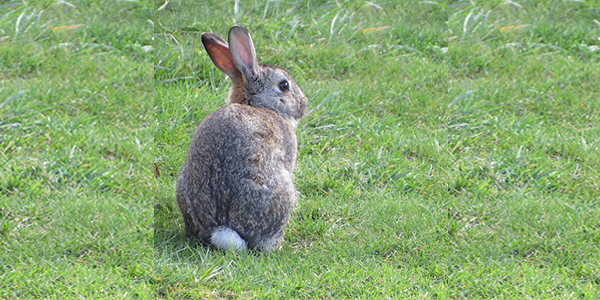||| FROM RUSSEL BARSH for KWIAHT |||
There have been multiple reports this past week of dead feral European rabbits on Orcas and Lopez. While test results have not yet come back from the state veterinary laboratory at WSU, the evidence suggests a fresh outbreak of Rabbit Hemorrhagic Disease (RHDV2), which decimated the islands’ feral rabbit populations in 2019. All rabbits in the San Juan Islands are descendants of introduced European rabbits, and are susceptible to RHDV2. Feral rabbits can pass the virus to domestic rabbits; but it does not appear to infect other wildlife or livestock, or avian scavengers on dead rabbits.
RHDV2 quickly kills about 90% of infected feral rabbits. However, as we learned in 2019, the survivors can thrive and multiply within a few years. The greatest threat from RHDV2 in the islands is to rabbits that are kept in backyard hutches for food or as pets. If you keep rabbits and several die suddenly, we encourage you to contact Amber Itle at WSDA immediately, AItle@agr.wa.gov
Kwiaht is assisting the state Department of Fish and Wildlife in assessing this situation. If you encounter a freshly dead feral rabbits in the next few days, you can contact us at info@kwiaht.org for directions on possible sampling and safe disposal.
Although there is no evidence of a risk to humans from RHDV2, always exercise caution with respect to dead, possibly infected animals. Shovel some soil over them to accelerate decay and deter scavengers that might carry them elsewhere. Avoid direct contact and wash up with soap and water as a precaution. If a dead animal must be moved or removed, use doubled plastic bags and solid waste disposal.
Be sure to report what you have found so that state agencies and their local partners can investigate. Use this link: https://survey123.arcgis.com/share/1550804e5fd743668049e06d5ad8836a
**If you are reading theOrcasonian for free, thank your fellow islanders. If you would like to support theOrcasonian CLICK HERE to set your modestly-priced, voluntary subscription. Otherwise, no worries; we’re happy to share with you.**








Thank you for this information. The Washington State Vet confirmed the deaths were caused by RHDV2 on Octber 3rd.